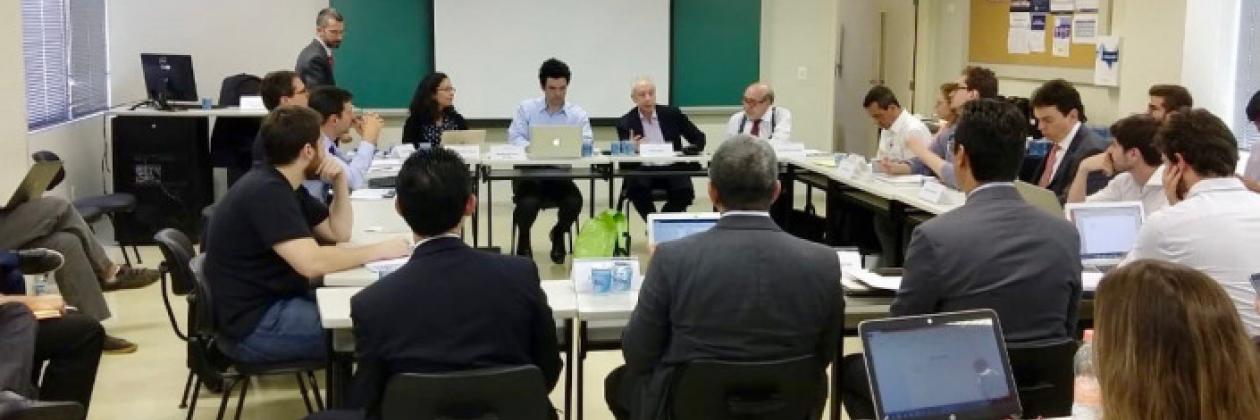Research workshop: debate on the legal research of economic stabilisation plans
In April 10 2018, professors Camila Villard Duran (former GLF and Professor of Law at the University of São Paulo - USP) and Bruno M. Salama (Professor of Law at the Getulio Vargas Foundation - FGV) organised the first workshop to discuss empirical research reports on the legal history of the Brazilian monetary plans formulated between the 1980s and the 1990s to fight against hyperinflation. These reports were prepared by the members of the research group on Law, Money and Finance, an initiative of the Brazilian research institutions, the USP and FGV. This workshop had the financial support of the Oxford-Princeton Global Leaders Fellowship Programme.
Between 1980 and 1994, Brazilian government implemented nine different economic plans aimed at controlling hyperinflation. In this historical period, Brazil had six different currencies. The battle against Brazilian inflation (in 1993, annual inflation peaked at 2,477.15%!) would only be defeated with the formulation of the Real Plan in 1994. The aim of the research group is to develop an empirical research prioritising the legal dimension of these economic plans. The main idea is to investigate the legal sources of these plans - laws, opinions, court decisions and articles of doctrine. All political measures passed through the hand of lawyers, prosecutors, legal practitioners, and in what would become an increasingly common feature of the Brazilian State, almost everything was examined, interpreted and finally decided by the Judiciary. Recently, Camila Villard Duran wrote about it in a Project Syndicate piece.
The workshop had the participation of important persons involved either in the creation of the Brazilian monetary plans in the 1980s/1990s, or with the judicial litigations regarding these public policies:
- Persio Arida (who was responsible to design these public policies in the 1980s and 1990s; member of the Advisory Board da Blavatnik School of Government, Oxford University)
- José Tadeu de Chiara (lawyer and professor of Law at the USP)
- Flavio José Roman (lawyer of the Brazilian Central Bank)
- Rodrigo Kanayama (lawyer and professor of the Federal University of the Paraná State - UFPR)
- Ricardo Mourão (general counsel of the Goldman Sachs)
- Rui Alves (general counsel of the Deutsche Bank)
- Emerson Ribeiro Fabiani (professor of the Getulio Vargas Foundation and specialist in banking law)
- Marcos Cavalcante de Oliveira (lawyer of the Sturzenegger e Cavalcante Advogados Associados)
- Antonio Celso Pugliese (lawyer of the Vella, Pugliese, Buosi e Guidoni Advogados).





